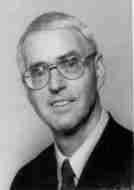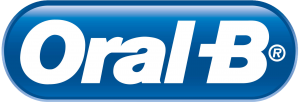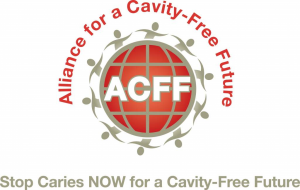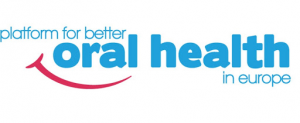
NEWSLETTER Number Two September 2000
PRESIDENT'S ADDRESS
EAPD COMMITTEES
REPORT ON SPECIALTIES RECOGNITION IN THE EUROPEAN UNION
THE PRESIDENT'S REPORT TO THE COUNCIL

PRESIDENT'S ADDRESS
Dear Colleagues,
The 5th Congress of the EAPD is history and so are my first few months as Presi-dent of our Academy. The Congress was successful from my point of view, since I got so many positive comments from so many attendees both during the Congress and afterwards. If those who attend a Congress are happy, the organiser should certainly be happy. So, I was happy and tired. However, these words were written a few minutes before I started my summer holidays, so there were no reasons for complaints.
Taking over the Presidency after Luc Martens is a challenge. Luc has been a model for me in many aspects; and he has done a great job during his two years in the chair. However, it would be a mistake if I try to copy him to much, since this probably will inhibit the natural development of an organisation that occurs during shift of leadership. I will try to do things my way, in an environment of collaboration with Board and Council members. Even if some very experienced Board members (Martin Curzon, Secretary) and (John Roberts, Treasurer) have been replaced, I feel so confident and safe about the incoming members (Nick Lygidakis, Secretary; Luc Marks, Treasurer, Sven Poulsen, President-Elect). With Luc Martens as Past President, we will make a good team.
During the closing ceremony at the Congress I told the audience some of my visions of being the leader of the Academy. Leadership in my mind is first of a11 synonymous with being the driver of a car where a11 passen-gers' opinions of where to go should be taken into consideration. I also hope that I am able to take initiatives and create inspiration, both within the Board and at the local level. In order to do this, we need improved communication, and e-mail and web-pages are excellent tools for this. I am grateful to the editor of our web-page, Professor Constantine Oulis in Athens, for what he has done, and I have confidence in his work for improving and updating the page.
I am also extremely glad and impressed about what the Editor in Chief, Professor Martin Curzon, in collaboration with the Italian Society of Paediatric Dentistry and its two Associate Editors, Professors Giuliano Falcolini and Damaso Caprioglio, have achieved. It was less than one year from the time that the decision was made to establish the European Journal of Paediatric Dentistry until the first issue was published. The quality of the first two issues is very promising for the future of the Journal.
I met with so many kind and interesting colleagues during the Congress in Bergen, and there were so many interesting ideas for how to proceed towards our goal of improved dental care for children in Europe. I remember only fragments of these, so please, to all of you who have ideas, do not hesitate to contact me and give me the inspiration I need.
Best regards
Magne Raadal
|
Constitution |
Nominations |
|
Dr J Veerkamp (Netherlands, Chair) 96 |
Prof. L. Maτtens (Belgium, Chair) 00 |
|
Dr D. Declerk (Belgium) 98 |
Prof. L. Papagiannoulis (Greece) 00 |
|
Dr I. Mejare (Sweden) 98 |
Dr R. Brandt (UK) 00 |
|
Prof A. Blinkhorn (UK) 98 |
Dr M. van Lunsen (Netherlands) 00 |
|
Prof. S. Kreiborg (Denmark) 98 |
Prof. K. Pieper (Germany) 00 |
|
|
|
|
Credentials |
Budget & Finance |
|
Prof. L. Martens (Belgium, Chair) 00 |
Prof. I. Raadal (Norway, Chair) 00 |
|
Prof. J. Boj (Spain) 98 |
Prof. S. Poulsen (Denmark) 00 |
|
Dr G. Vadiakis (Greece) 00 |
Dr L. Marks (Treasurer, Belgium) 00 |
|
Prof. E.van Amerongen (Netherlands) 96 |
Dr H. van Waes (Switzerland) 00 |
|
Dr J. Aps (Belgium) 00 |
|
|
|
|
|
Education |
|
|
Dr L. Marks (Belgium, Chair) 96 |
Prof. M. Duggal (UK) 98 |
|
Dr J. Veerkamp (Netherlands) 98 |
Dr S. Pizzi (Italy) 98 |
|
Dr A. Vanderas (Greece) 00 |
Prof. C. Rasmusson (Norway) 00 |
|
Ex-Offecio *Prof G. Koch (Sweden) 00 |
*Prof. M. Curzon (UK) 00 |
|
* appointed ex-officio to implement the accreditation of Postgraduate Training Programs. |
|
Note: members of committees are appointed or elected from Council and the General Assembly for a term of two years. Each member may be re-appointed/elected but may not serve for more than six years. The President is automatically chairman of the Budget and Finance Committee. The immediate Past-President is automatically chairman of the Credentials and Nominations Committees.
Dr. Constantine J. Oulis, Past President and Member of the Task Force.
Background information: The relative bodies and committees of the EU, which in a direct or indirect way influence the recognition of dental specialties in Europe, from the top to the bottom, are as follows:
The Committee of Senior High Officials in Public Health. This Committee is composed of people who are career officials working in the Ministry of Health or other governmental positions related to the Public Health System of each European country. Every issue related to Public Health has to go through this Committee for approval before entering the process for discussion at the council or any other EU level. Its role therefore is decisive and very substantial.
The Advisory Committee on the Training of Dental Practitioners. This Committee is composed of three (3) representatives from each country representing the Educational, Professional and Health Authorities (Ministry of Health). The duty of this Committee is to discuss, develop and propose to the Commission measures aimed to converge the educational and training requirements of the EU countries to the minimum standards. Its role is advisory and it does not have the power to enforce any proposals made.
The Liaison Committee. This committee is composed of people coming from and representing the profession in Europe. They are mainly syndicalists and mostly general dental practitioners. Its role is also advisory, dealing with matters mainly in relation with professional issues.
The Division to which these committees are related is the DG Fifteen Division (DG XV/E/2) or so-called lately Division of the Internal Market. The Chief of the Division is Mr. Jonathan Stoodley and the Secretary is Mrs. Costacurta (see in President's report) who is also serving as Secretary of the Advisory Committee.
Present Situation.
As you all remember, the Council has appointed a task force aimed to work and co-ordinate all the appropriate actions that we need to do towards the recognition of our speciality within Europe. As a member of this task force I have been establishing a lot of contacts and have discussed the subject with various people at different levels in the EU from different countries for the last 6 years. I have done this on the basis of participating in different and various Committees of the EU representing Greece. The first impression from these contacts that I must share with you is that the recognition of specialties in Europe at the moment is rather more negative than positive. Of course, this impression is a general one referring to all specialties and not only to Paediatric Dentistry.
The most important thing that we have to keep in mind is that this attitude and impression is governed and based on an individual representative basis and not on any European or Nationally based decision. The decision on specialties recognition in each country is based solely on an individual country's decision and each country is free to establish and recognise as many specialties as it considers necessary according to its needs. Up to now, several actions and decisions have been taken that, depending on the site you are in, can be considered in favour (positive) or against (negative) the recognition of the specialties in Europe.
Negative points for recognition:
1. The attitude of the Liaison Committee. This has produced a political statement, a product of a working group who examined the subject, and came to the conclusion that for the time being the profession has no need to recognise more specialties besides the two (2) in place already: Oral Surgery and Orthodontics.
2. The statement of the Committee of Senior High Officials on Public Health dated 25/6/1997 according to which, after a round table discussion of Member States, decided although not unanimously, that there is no need to include more specialties in the Directives at the present time.
3. The majority of the people participating in the Advisory Committee are reluctant to discuss the recognition of more Dental specialties. The truth of the above is that, even though the working group of the Advisory Committee was instructed by the Plenary Committee to discuss the future development of the specialties in EU, the Chairman and some others of the group did not want to, and so far have succeeded in not discussing the issue.
All of the above constitutes the general impression in the EU against the recognition of more specialties. Positive points and many more that can change this impression can be developed in favour of the specialties. However, contrary to this situation, there are positive points that are:
Positive points for recognition:
1. The positive conception of many Dental Schools and Academics who are in favour of specialties recognition. An example of this is the production of specialised dentists from several graduate programs of many Dental schools in Europe. The growing pressure of these people on the system and the profession will ultimately make the authorities reconsider their negative views.
2. The positive conception of the existing scientific societies, and the development of more, such as "The European Committee of Specialists and Qualified Exclusives in Dental Medicine" aimed to promote the recognition of more Dental specialties in Europe. All these societies will exercise, in a very short time, a lot of pressure at a National and EU level. The most important thing is that all these people have not made obvious and loud their beliefs until now. This leaves only the people from the general dental profession to dominate committees and spread around the impression that the Dental profession in general is against the recognition of more specialties.
3. The fact that many EU documents have recognised that the five (5) years Dental training is inadequate to produce a competent dentist to meet the demands of tomorrow. That is the reason why the Advisory Committee has already produced several documents regarding competencies of the new dentists, which must be fulfilled after an extra period of training before entering dental practice. Based on these, we have the document related to Post Graduate Competencies before entering Dental practice and Post-Graduate Pre-specialists Competencies before entering any program for specialisation. The above evolution takes away the argument of the Commission that dental training for financial reasons, must be kept to 5 years duration. Extra education, therefore, is not limited to general dentistry but to specialisation as well.
4. The fact the United Kingdom is another country in the EU besides Sweden, that, since 1/1/1999, has recognised all Dental specialties (Paediatric Dentistry is included) gives us the opportunity to ask the Commission to include Paediatric Dentistry in the Dental Directives.
5. The subject of new specialties has begun, allthough reluctantly at the beginning, to be included in the agendas of several bodies and committees. The Advisory Committee for example, included for discussion the subject of "Future Developments of Dental Specialties in Europe" at it's last meeting. The attempt to develop organisations and societies aimed to pursue and succeed to recognise Dental Specialties in Europe is another sign of the growing interest of people in specialisation.
Conclusions and proposals: Although the picture in the EU about specialties is rather negative at the moment, things can change if all of us, who are in favour of specialties, continue to support our positions and spread our views to the others. We must continue as the European Academy of Paediatric Dentistry our contacts and join our efforts with other organisations that are in favour of the specialties. We have to apply, as an Academy and/or individuals, for membership to "European Committee of Specialists and Qualified Exclusives in Dental Medicine". We must coordinate our efforts with the two countries (UK and Sweden), that already have recognised the specialties, to apply to the Commission and ask for the speciality of Paediatric Dentistry to be included in the Dental Directive 78/686/EEC. Last, but not least, every councillor must keep in touch with the representatives of his or her country at the level of:
a. The Committee of Senior High Officials on Public Health,
b. The Advisory Committee on Dental Training,
c. The Liaison Committee and try to influence their views in favour of the specialties and particularly of Paediatric Dentistry.
The EAPD Task Force on Specialty Recognition must continue it's work and co-ordinate it's contacts with the Executive Board for all efforts and necessary actions towards the recognition of our specialty.
Constantine I. Oulis. June 2000
BERGEN, June 2000
Since the Board meeting in London (Sept `99), I kept close contacts with Martin Curzon in order to realise the first issue of the journal. This has now come about and I hope that the11 members are pleased with our efforts. Regarding the recognition of our speciality I have been in correspondence with Mrs Costacurta, of the European Commission. Also I attended a meeting in Brussels organised by Simon Hirsch where I presented a lecture on the existence and the goals of the EAPD. Details of the present status of the speciality in Europe are presented elsewhere in this Newsletter by Professor Oulis.
I was invited by The Hellenic Society of Dentistry for Children at their 30th Congress in the year of their 40th anniversary where I addressed the audience at the opening ceremony on behalf of the EAPD-board. During this Congress I had a breakfast meeting with Richard Widmer, IAPD President concerning future co-operation between EAPD and IAPD. There were also many e-mail contacts regarding the EAPD-IAPD informal meeting (subsequently held in Bergen and to be reported on later).
During the past two years I was in permanent contact with Magne Raadal regarding the 5th Congress, held in Bergen. This included my activity as a member of the scientifιc committee where I have read and judged all abstracts. It was most gratifying that we received a record number of abstracts for the Bergen meeting reflecting the growing strength of the EAPD.
During the past year there were many e-mail contacts regarding the nomination of candidates for President-Elect. I have also written a number of letters including my 3rd Presidential letter (Dec. 1999) to all councillors and board members and another presidential letter (May 2000) only to board members. Presidential columns for the Newsletters in 1999 and 2000 have been prepared.
I dealt with a great deal of conespondence regarding the questions of upgrading membership, councillor changes, future Congresses, future plans of the educational committee, AAPD, EAPD-prize, Credentials Committee considerations which I sorted out preparing the Bergen board meeting.
Despite our agreement in London, I did not succeed to start up the working groups for the other policy documents regarding, pit and fissure sealing, antibiotics and x-ray's in children. While Chairmen of these working groups were appointed in London the initiation of their activities has been slow. This will remain an urgent pending task!
Luc C. Martens.
Ghent 5th June, 2000
EAPD DIRECTORY: This is enclosed with this issue. The up to date details for the Executive and the Councillors are on pages 3 & 4 of this Newsletter.
JOURNAL: If you did not receive a copy of the first issue of the EJPD please let Professor Curzon know as soon as possible.
CHANGE OF ADDRESS: Do not forget to inform the Secretary (Nick Lygidakis) as soon as possible of any change of address, tel, fax or e-mail so that our records are always as up to date as possible.



